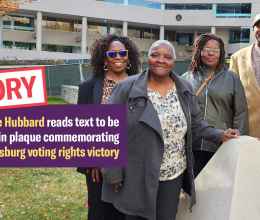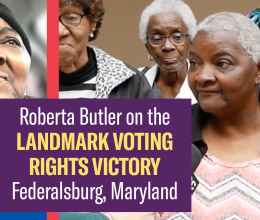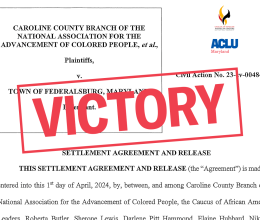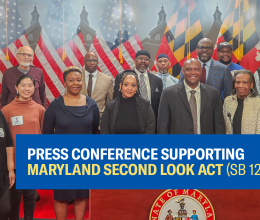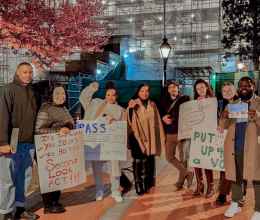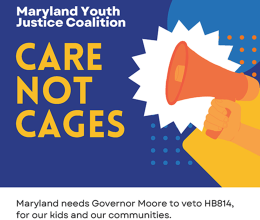
Read the Campaign for Justice, Safety and Jobs coalition letter
BALTIMORE - In a letter to Baltimore City Mayor Stephanie Rawlings-Blake and Police Commissioner Kevin Davis, a citywide coalition of advocates urge city leaders to ensure that progress towards police accountability adopted during the 2016 Maryland General Assembly is upheld during the city's ongoing contract negotiations with the Baltimore City Fraternal Order of Police Union. Members of the Campaign for Justice, Safety, and Jobs argue that historic changes to the Law Enforcement Officers Bill of Rights - the first since in over 40 years - were the result of a groundswell of political and community support for increasing police accountability and civilian oversight in policing after the death of Freddie Gray in April of 2015. The failure to allow these reforms to take effect in Baltimore would be a significant setback to reform efforts.
"Legislators in Annapolis began to address the structural impediments that the current LEOBOR poses to real accountability," said David Rocah, Senior Staff Attorney with the ACLU of Maryland. "The clear intent of the legislation signed by Governor Hogan in May was to increase civilian oversight and transparency in police discipline as a key step towards rebuilding community trust."
The reforms to the LEOBOR passed by the general assembly were led by State Senator Catherine Pugh and State Delegate Curt Anderson, and were unanimously supported by the entire Baltimore City Delegation as well as the Rawlings Blake Administration. The state legislation increases civilian oversight by authorizing local jurisdictions to permit two civilians to serve on the hearing boards that decide whether officers in Maryland can be disciplined by their employers. The legislation still empowers police unions, however, to block this significant reform through provisions in the union contract.
"The existing police union contract is one of the primary obstacles to police accountability in Baltimore," said Monique Dixon, Deputy Director of Policy and Senior Counsel for the NAACP Legal Defense and Educational Fund. "Provisions in the current contract that establish additional barriers to accountability beyond those required by the LEOBOR are a counterproductive hindrance to fair and responsible policing practices in Baltimore City."
In the letter, advocates urge the Mayor and Police Commissioner to use their bargaining power to negotiate a police union contract that reflects the will of Baltimore's residents and elected officials as a critical step towards systemic police reform. The letter comes just days after the acquittal of the highest ranking officer charged in the death of Freddie Gray, as the public attention shifts to the internal discipline process.
"History has proven that in low income Black and Brown neighborhoods, officers have no fear of discipline, and why should they?" said Ray Kelly, Community Organizer with the No Boundaries Coalition. "In Baltimore bad cops are not disciplined because the trial board is so heavily weighted on the side of the FOP."
Advocates are hopeful that Mayor Rawlings Blake and Commissioner Davis will heed the community outcry for reforms to the police discipline process, beginning at the bargaining table.
###
